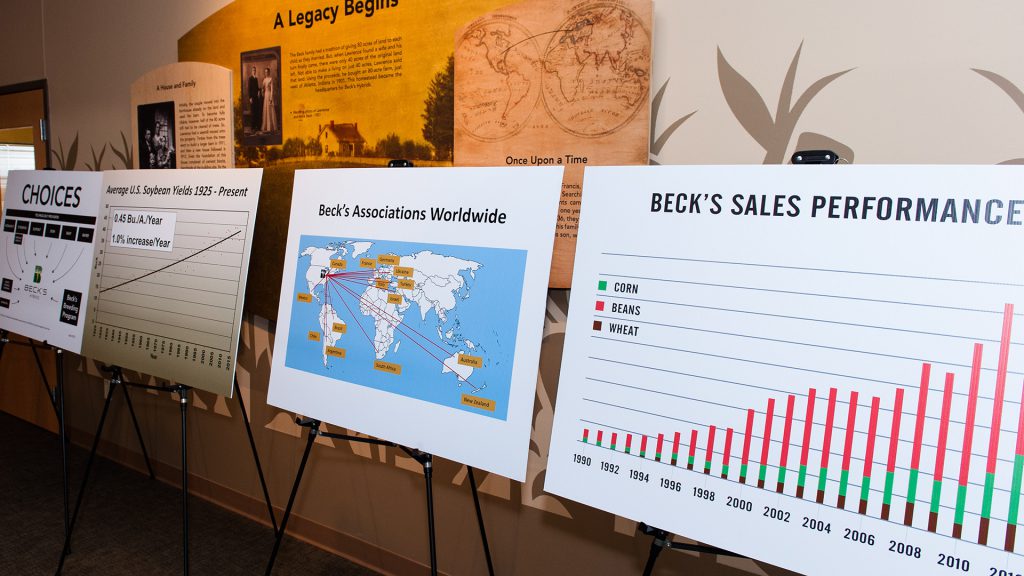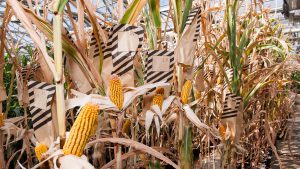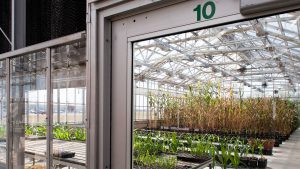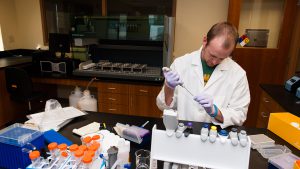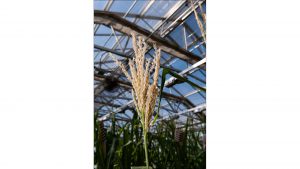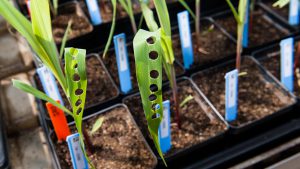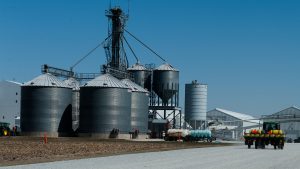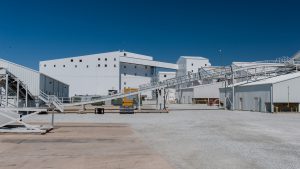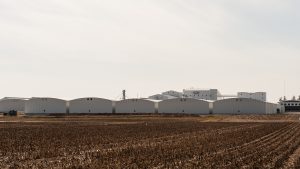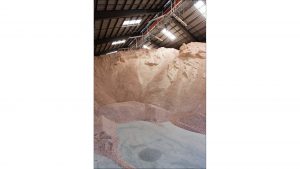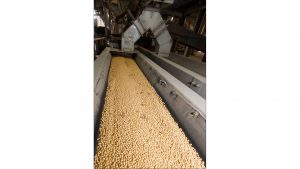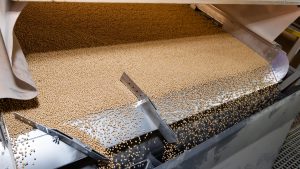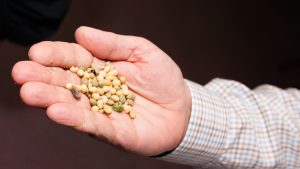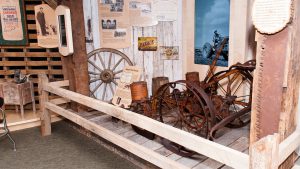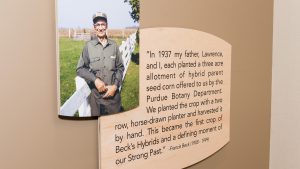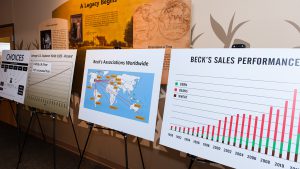
Beck's four greenhouses allow researchers to produce several test crops each year by accelerating the growing cycle. - Photo taken by Eric Learned
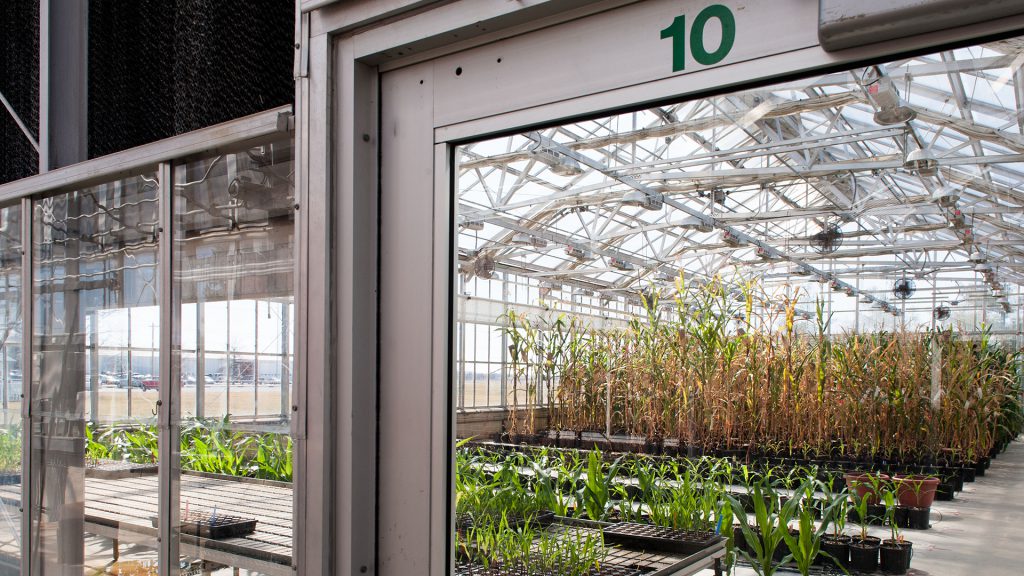
Genome lab employee James Walsh tests samples of plant materials to make sure they have the characteristics Beck's corn breeders are seeking. - Photo taken by Eric Learned
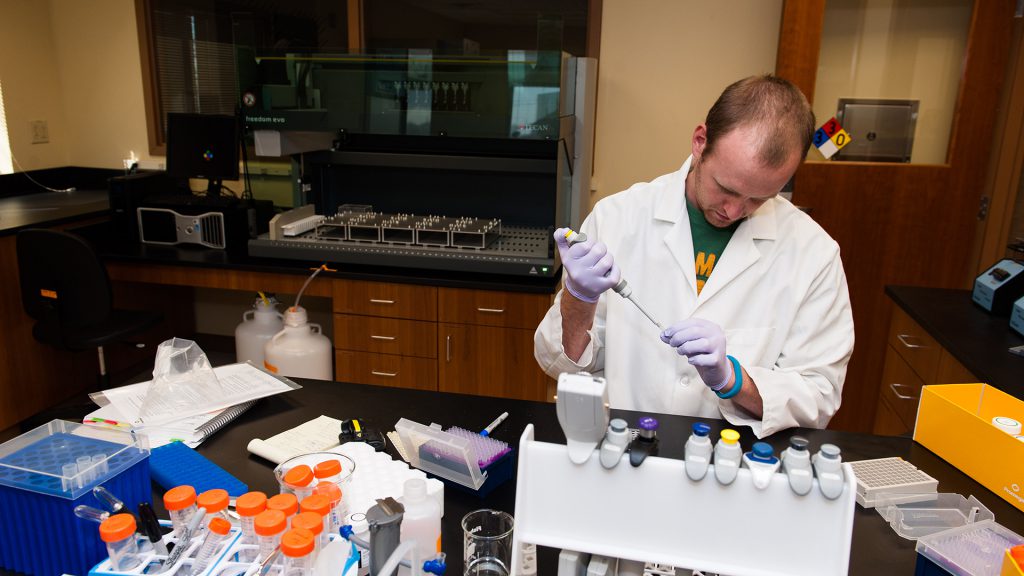
Tassels produce the pollen used to fertilize corn silk, producing seeds. - Photo taken by Eric Learned
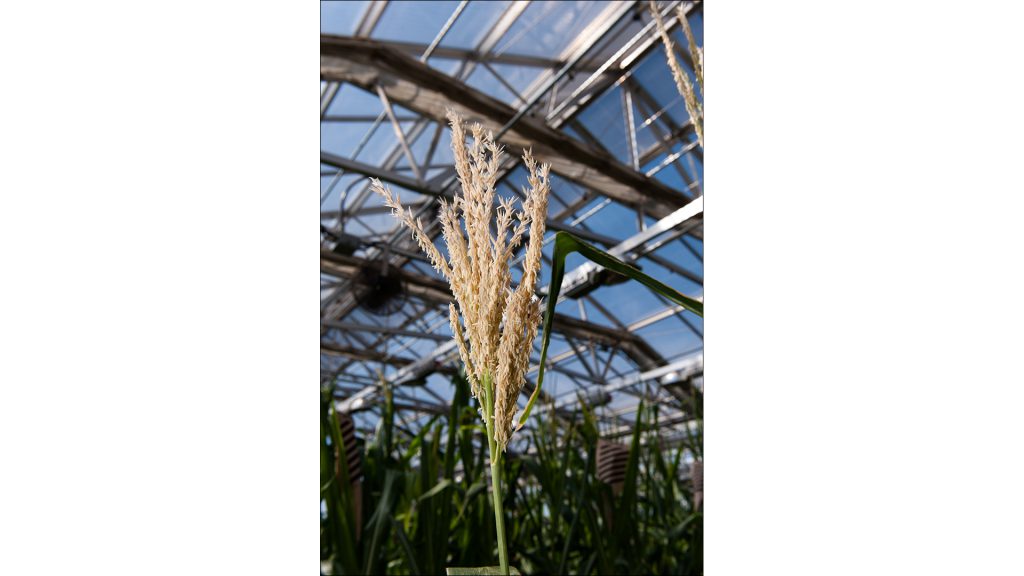
Researchers take small samples of seedling to test their genetic composition. - Photo taken by Eric Learned
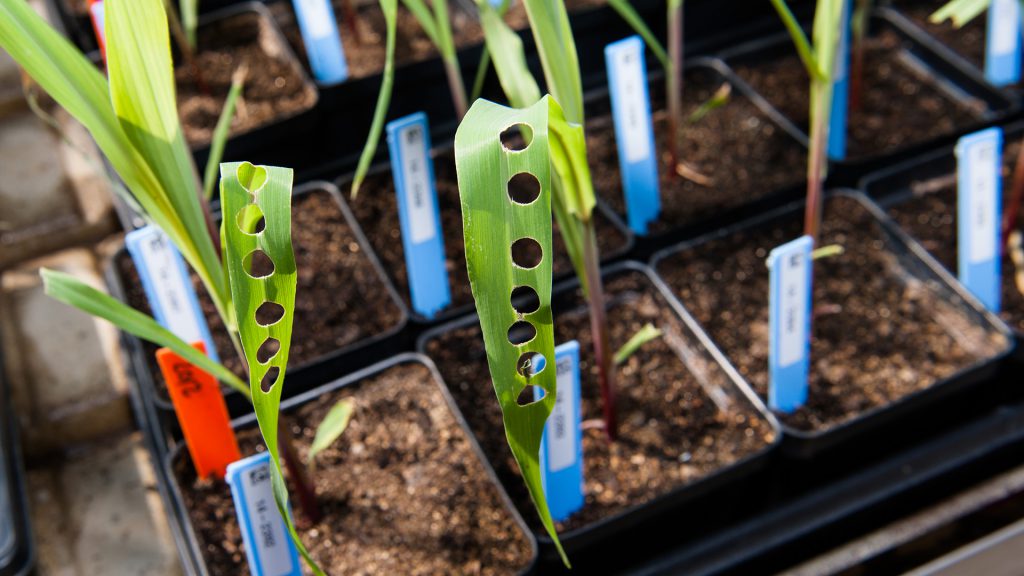
Unlike most seed companies, Beck's grows the majority of the corn it uses. These tanks on its Atlanta campus hold fertilizer and other farm treatments. - Photo taken by Eric Learned
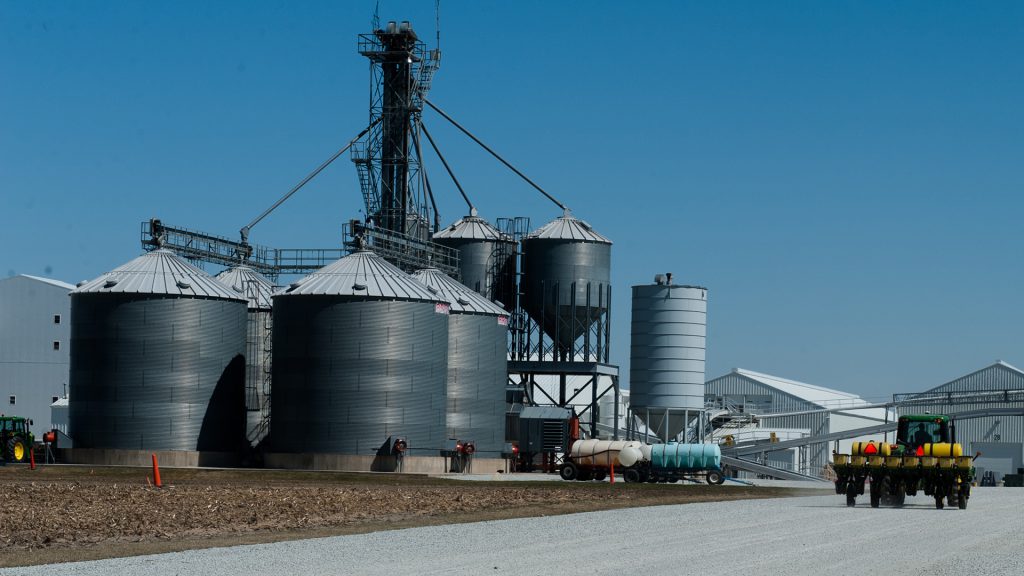
Beck's has 1 million square feet of facilities at its Atlanta campus, including two processing towers for its corn, soybeans and wheat. - Photo taken by Eric Learned
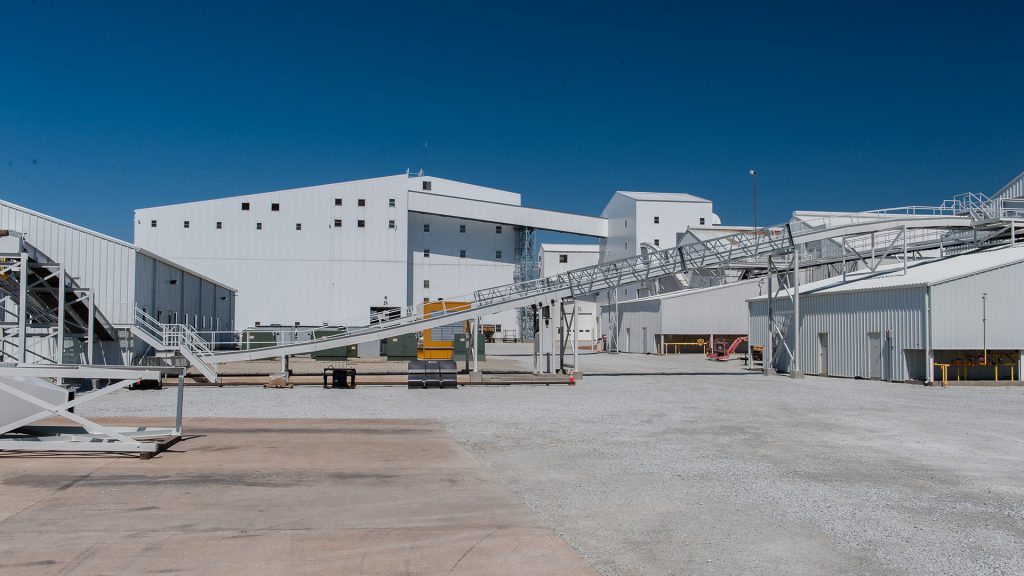
Beck's is firmly planted along 276th Street between U.S. 31 and State Road 19. It produces, processes and distributes products for customers in portions of eight states. - Photo taken by Eric Learned
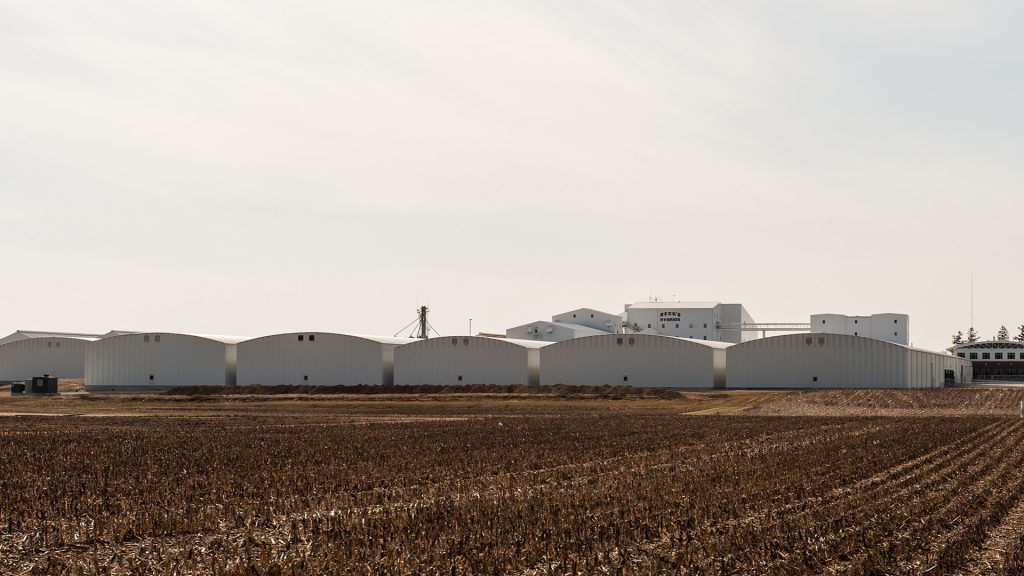
Very little is wasted at Beck's. After the corn seed is removed, cobs are ground up and bagged for sale as ''Beck's Better Bedding'' for livestock or pets. - Photo taken by Eric Learned
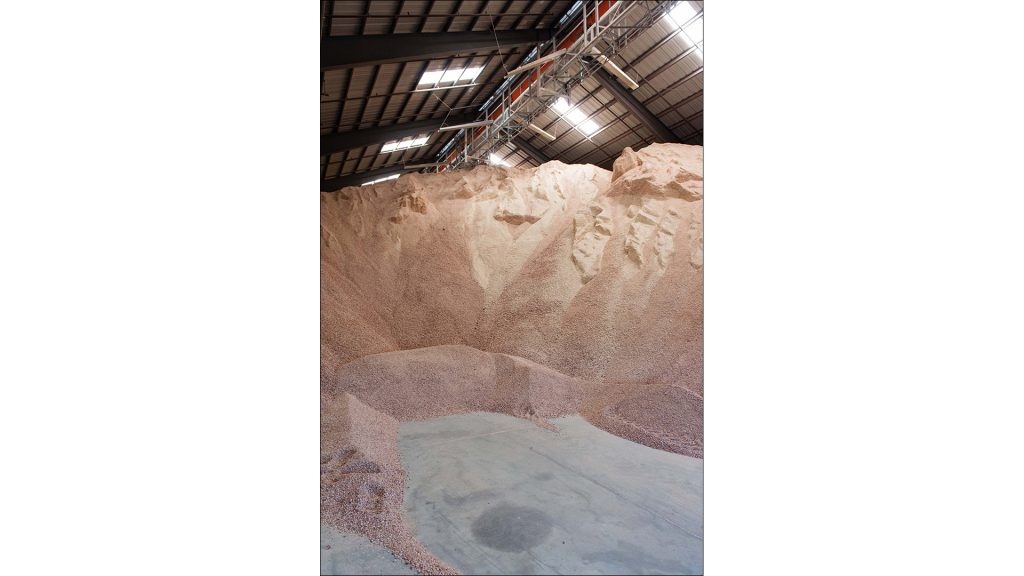
Soybeans and other seeds are cleaned and sorted before being treated and bagged in Beck's two processing towers. A third tower is planned as part of the company's upcoming expansion. - Photo taken by Eric Learned
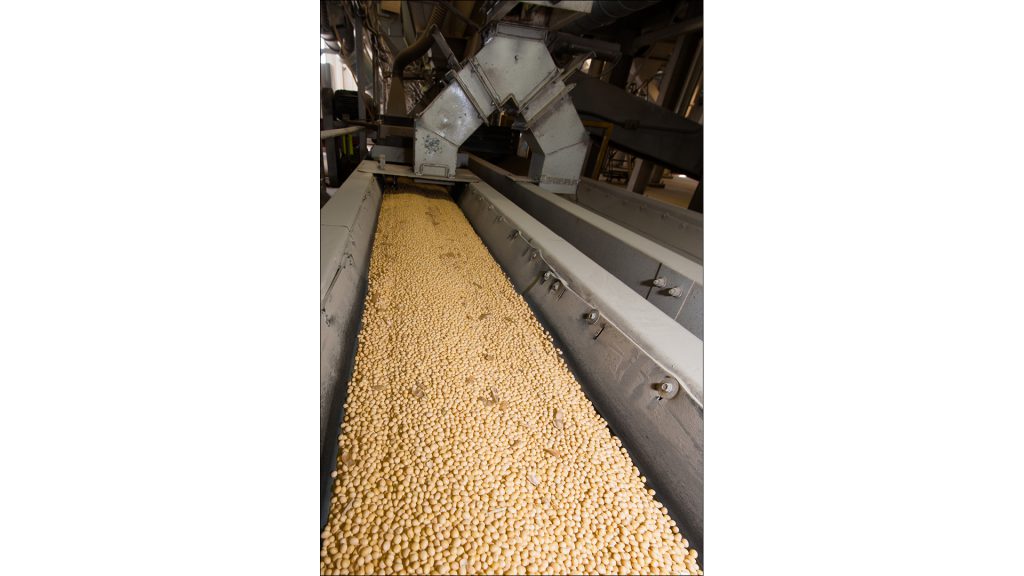
The multi-stage sorting process weeds out undesirable seeds. - Photo taken by Eric Learned
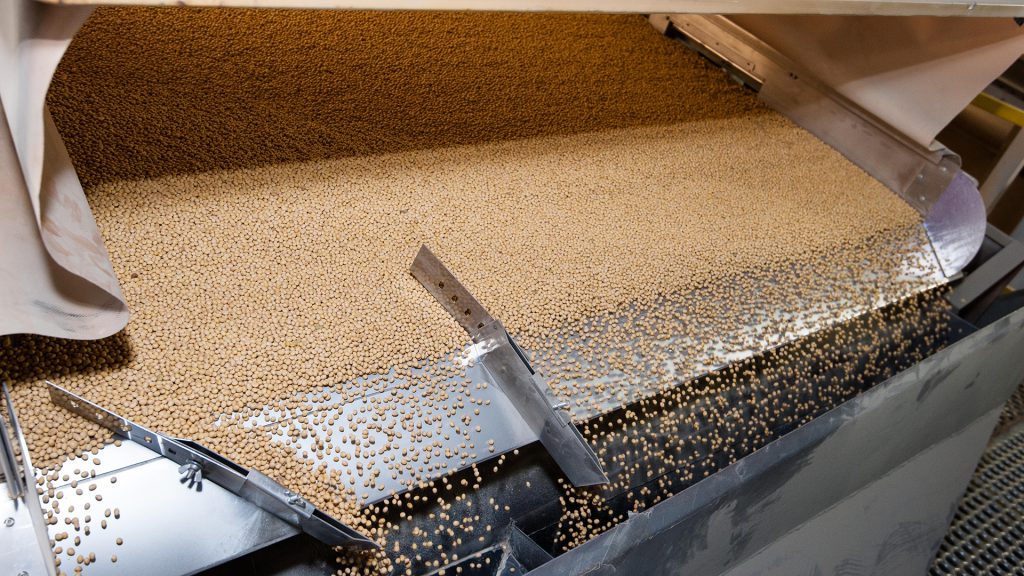
Beck's wants its products to have uniform weight, appearance and performance. These seeds were rejected during the sorting process. - Photo taken by Eric Learned
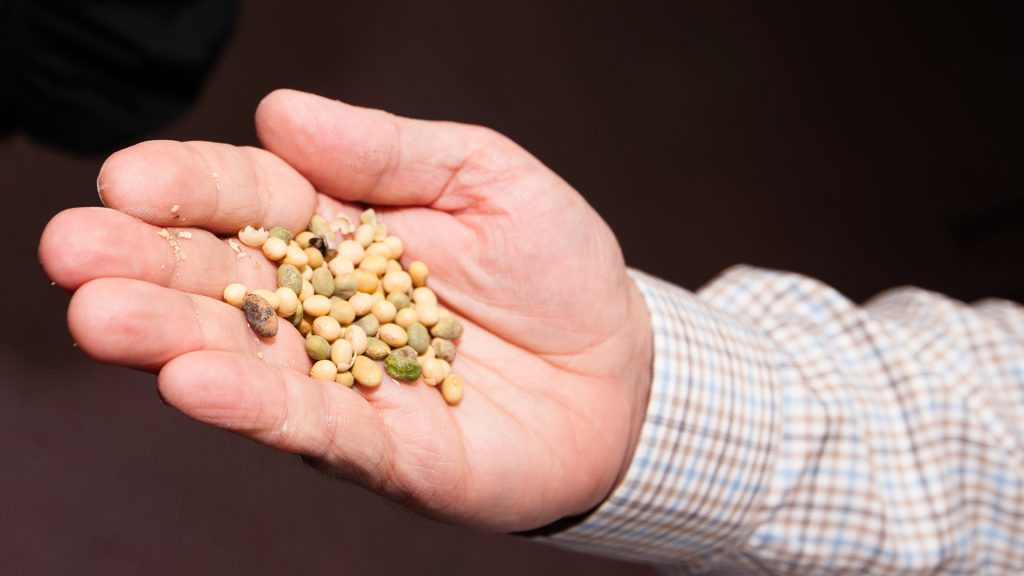
Lawrence and Francis Beck used this horse-drawn two-row planter to start their first six acres of hybrid corn in 1937. - Photo taken by Eric Learned
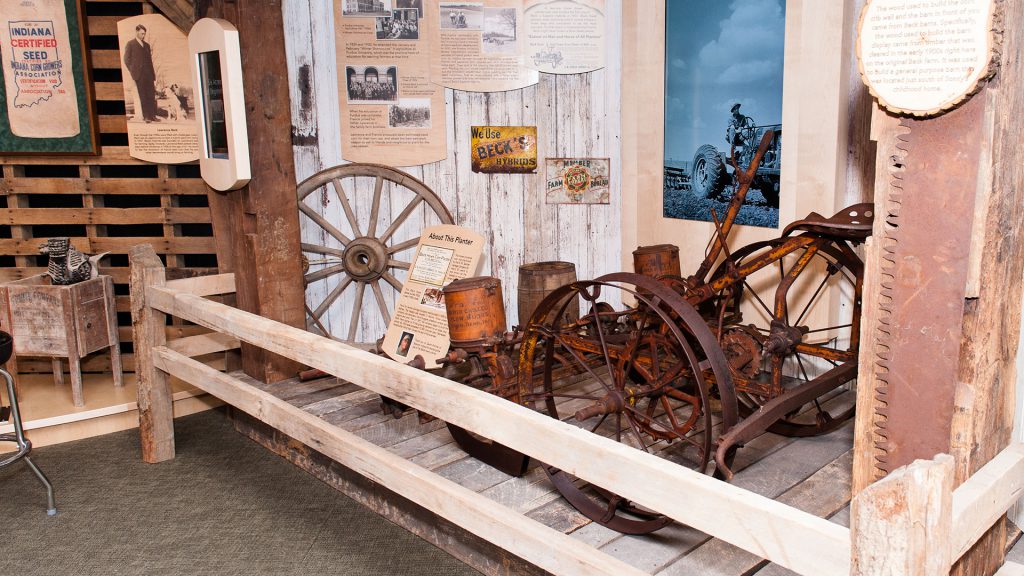
Company co-founder Francis Beck expanded the family farming operation to take advantage of the promise hybrids offered. - Photo taken by Eric Learned
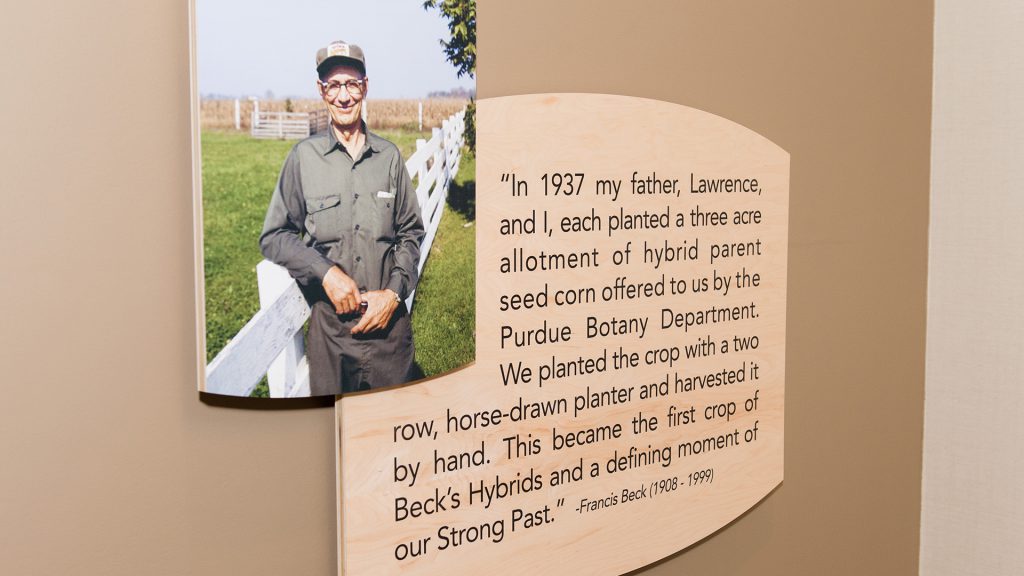
Beck's is the sixth-largest retail seed company in the United States, averaging 20 percent growth each year for more than two decades. - Photo taken by Eric Learned
